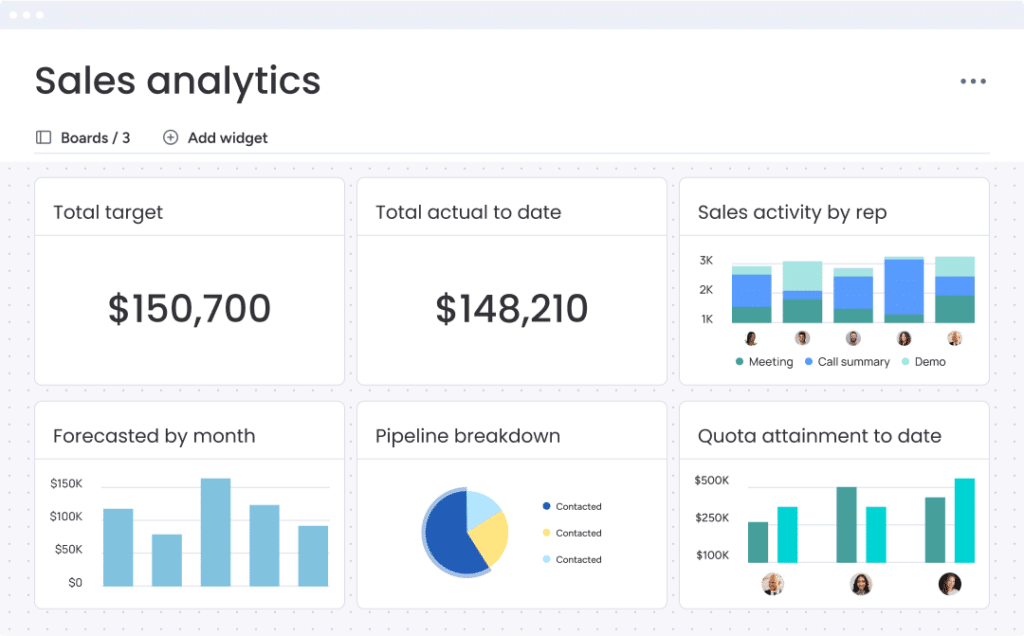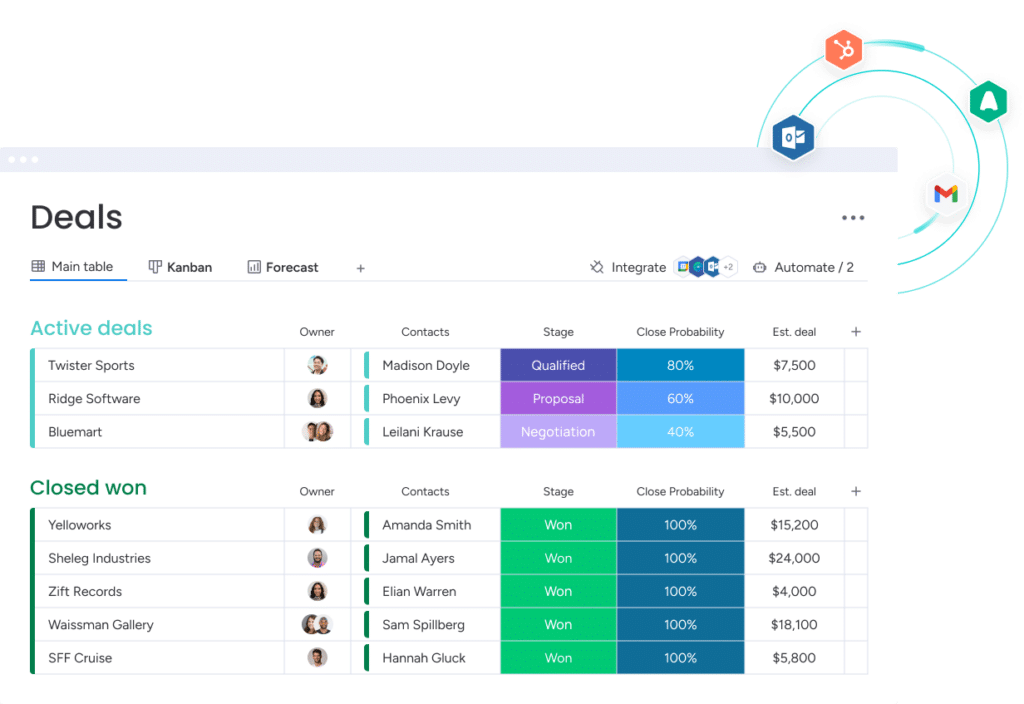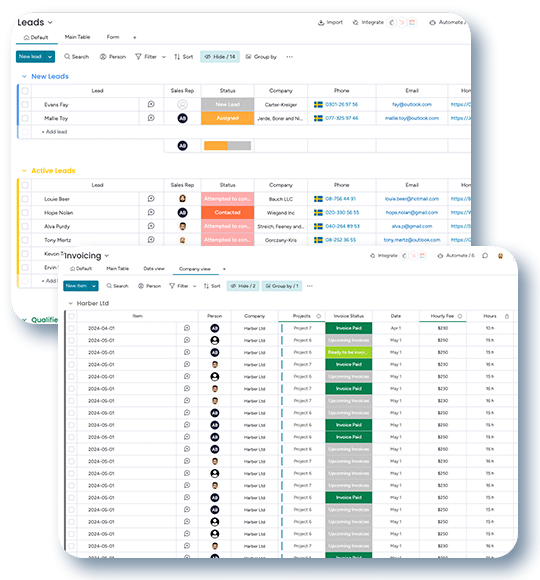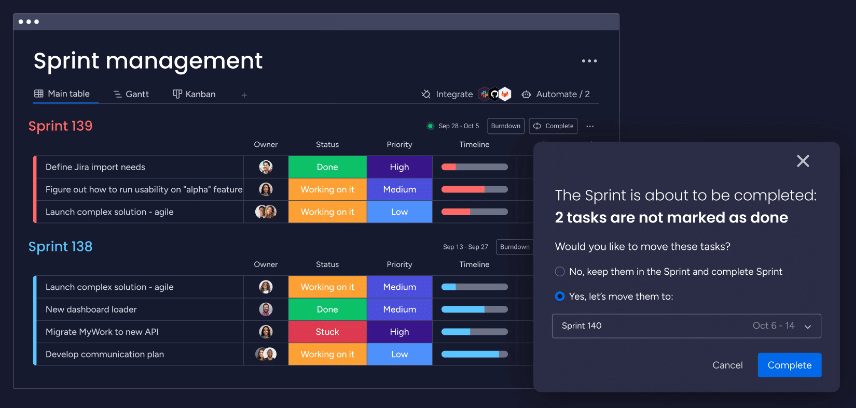Introduction
In today’s digital age, where every customer interaction can tip the scale towards success or failure, understanding why a CRM is important for small businesses is more crucial than ever. Customer Relationship Management (CRM) systems are not just technological tools. They are pivotal strategies for nurturing customer satisfaction and loyalty, driving sales, and streamlining operations. For small businesses, in particular, a CRM is not merely an option but an essential component for sustainable growth and competitive advantage.
Yet, the question remains: Why is a CRM so vital for the flourishing of small enterprises? At its core, a CRM system offers a centralized platform to track customer interactions, sales, and marketing efforts. It allows businesses to cultivate a deep understanding of their clientele. This is particularly significant for small businesses that thrive on building strong, personal relationships with their customers. A CRM’s ability to offer detailed insights into customer preferences and behaviour patterns can transform the way small businesses connect with their audience, tailor their offerings, and ultimately, achieve their business objectives.
In this blog post, we delve into the multifaceted benefits of CRM systems. Further showcasing how they can help small businesses grow. From enhancing customer relationships to optimizing marketing strategies and streamlining sales processes, we uncover the pivotal role of CRM systems in elevating small businesses to new heights. Join us as we explore why a CRM is important for small businesses. We offer actionable insights and recommendations to harness the full potential of CRM solutions for your business’s success.
Understanding the Role of CRM in Small Business Growth
The adoption of a Customer Relationship Management (CRM) system represents a pivotal shift in how small businesses approach their operations and strategy. In essence, a CRM system is more than a software solution. It’s a comprehensive approach to managing all your company’s relationships and interactions with potential and current customers. But why is a CRM important for small businesses? The answer lies in its unparalleled ability to foster growth, efficiency, and customer satisfaction.
A CRM system aids small businesses in numerous ways, from automating day-to-day tasks to providing deep insights into customer behaviours. By centralizing customer information, it ensures that every interaction with clients is informed and meaningful. As a result, this significantly improves the chances of conversion and retention. Let’s explore how the CRM evolution has paved the way for small businesses to thrive in today’s competitive landscape.
From Spreadsheets to Automation: The CRM Evolution
The evolution of CRM technology from simple spreadsheets to sophisticated automated systems marks a significant leap in business management capabilities. Initially, small businesses relied on manual methods to track customer interactions, a time-consuming and error-prone process. The advent of CRM software revolutionized this approach, offering automated tools that streamline data collection, analysis, and interaction tracking.
This shift has empowered small businesses to focus more on strategy and less on the mechanics of data management. Automation in CRM systems enables businesses to trigger personalized communications based on specific customer actions or milestones. As a result, this ensures that customers receive timely and relevant information. This evolution from spreadsheets to automation underscores why a CRM is important for small businesses. It provides a scalable solution that grows with the business.
Omnitas Newsletter
Sign up for our monthly newsletter to stay up-to-date on our latest blog articles, videos and events!
Thank you!
You have successfully joined our subscriber list.
The Multifaceted Benefits of CRM for Small Businesses
Understanding why a CRM is important for small businesses unveils a treasure trove of benefits that touch every aspect of the business. From streamlining operations to deepening customer relationships, the advantages of implementing a CRM system are both vast and significant. Below, we explore these benefits in detail, demonstrating how a CRM can be a game-changer for small businesses.
Enhanced Customer Relationships
At its core, the significance of a CRM lies in its capacity to foster enhanced customer relationships. Small businesses, with their naturally closer customer base, can leverage CRM systems to personalize interactions at an unprecedented level. By maintaining detailed records of each customer’s preferences, purchase history, and interaction logs, businesses can tailor their communication and offerings to meet the specific needs and interests of each customer. This personalised approach boosts customer satisfaction and encourages loyalty and repeat business, which are crucial for sustained growth.
Streamlined Sales Processes
Why a CRM is important for small businesses becomes particularly evident when examining its impact on sales processes. A CRM system automates key sales tasks, from lead tracking to the management of customer contacts and follow-ups. This automation eliminates manual errors and frees up time for sales teams to focus on what they do best: selling. Additionally, with access to detailed sales analytics and customer data, sales strategies can be refined and targeted more effectively. As a result, this significantly boosts conversion rates and enhances the overall efficiency of the sales funnel.
Improved Marketing Strategies
CRM systems offer powerful tools for improving marketing strategies. By providing deep insights into customer behaviours and preferences, a CRM enables small businesses to execute highly targeted marketing campaigns. Whether through segmenting customers based on their interactions, purchase history, or feedback, businesses can tailor their messaging to resonate deeply with each segment. Moreover, the ability to track the effectiveness of each campaign in real time allows for rapid adjustments and optimizations. This further ensures that marketing resources are always invested in the most impactful initiatives.
Centralized Communication Channels
One of the key benefits of a CRM system is its ability to centralize all communication channels. In today’s omnichannel world, customers might interact with your business through various platforms — from social media and email to phone calls and in-person visits. A CRM system consolidates these interactions into a single database. As a result, ensuring that no matter who in your team is speaking to a customer, they have a complete view of the customer’s history with your business. This centralized approach not only enhances customer service but also promotes a unified brand experience, reinforcing customer trust and satisfaction.
Data-Driven Decision Making
At the heart of why a CRM is important for small businesses is its role in facilitating data-driven decision-making. With comprehensive data on sales, customer interactions, and marketing effectiveness at their fingertips, businesses can make informed decisions that drive growth. This ability to quickly interpret and act on data insights means that small businesses can pivot strategies in real time, adapt to market changes, and identify opportunities for innovation and improvement.
Choosing the Right CRM for Your Small Business
Deciding to implement a CRM system is a significant step for any small business. However, the journey doesn’t end there. With a myriad of CRM solutions available in the market, each offering a unique set of features and benefits, choosing the right one becomes a critical decision that can significantly impact your business’s success. Understanding the key factors to consider and the essential features to look for will guide you in selecting a CRM that not only fits your current needs but also scales with your business growth.
Factors to Consider When Selecting a CRM
The process of selecting the right CRM for your small business involves considering various factors that can affect how well the system aligns with your business operations and goals. Firstly, evaluate the CRM’s integration capabilities with your existing tools and software, ensuring a seamless workflow. Consider the scalability of the solution, as your CRM should grow with your business without the need for frequent replacements. Usability is another crucial factor; your team should be able to use the CRM efficiently without a steep learning curve. Lastly, consider the cost implications, including not just the initial investment but also any recurring costs associated with subscriptions, additional features, or user licenses.
Key Features to Look For
While the specific needs of small businesses can vary widely, certain CRM features are universally beneficial. A user-friendly interface ensures that your team can adopt and utilize the system effectively. Customization options allow you to tailor the CRM to your business processes, making it a truly integrated part of your operations. Automated workflows can save valuable time by automating routine tasks, from lead follow-ups to customer service responses. Analytics and reporting capabilities are essential for deriving actionable insights from your customer data. Lastly, mobile accessibility ensures that your team can access vital customer information and perform CRM tasks on the go.
Affordable and Effective CRM Solutions
For small businesses, finding a CRM solution that is both affordable and effective is paramount. Fortunately, the market offers a range of options designed to meet these criteria. Platforms like monday.com stand out for their versatility, user-friendly design, and comprehensive feature set tailored to small business needs. This platform offers a visual, intuitive platform that simplifies customer relationship management, making it an excellent choice for small businesses looking for an effective, scalable CRM solution.
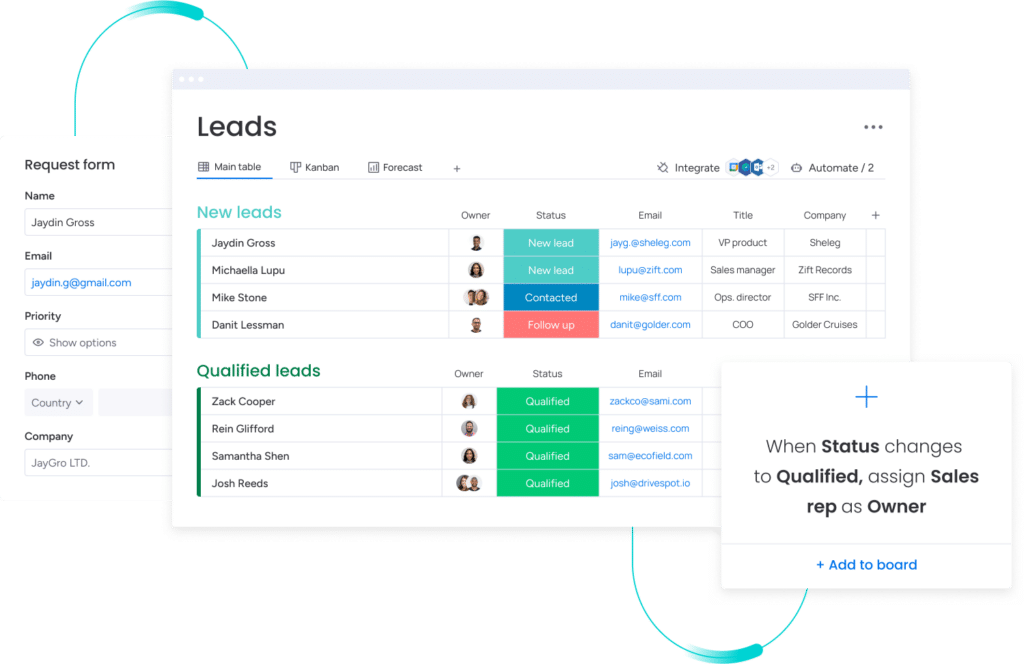
Implementing a CRM System: Steps to Success
The decision to integrate a CRM system into your small business operations is a transformative one. It marks the beginning of a more organized, efficient, and customer-centric approach to business. However, the benefits of a CRM system are fully realized only when it is implemented thoughtfully and systematically. Here’s a guide to ensuring your CRM implementation is a resounding success.
Developing a Clear CRM Strategy
Before diving into the technical aspects of CRM implementation, it’s critical to have a clear strategy in place. This involves understanding your business’s unique needs, setting clear objectives for what you wish to achieve with your CRM, and identifying the key performance indicators (KPIs) you will use to measure success. A strategic approach ensures that the CRM solution is aligned with your business goals. This results in a more focused and effective implementation.
Choosing the Right CRM with Expert Guidance
While selecting the right CRM for your business, the value of expert advice cannot be overstated. Partners like us at Omnitas specialize in understanding the nuances of various CRM systems and can provide tailored recommendations based on your specific business needs and objectives. Leveraging such expertise can save time and resources, ensuring that you choose a CRM solution that offers the best fit for your business model and growth aspirations. Being leading partners of monday.com, we have the knowledge and expertise to mould the platform according to your needs. In case monday.com isn’t for you, we take huge pride in referring you to other CRM partners that can provide you with implementation support for other CRM systems.
Training Your Team for Success
A critical step in CRM implementation is training your team to use the new system effectively. Comprehensive training sessions, customized to fit the roles and responsibilities of different team members, are essential. CRM partners like us play a crucial role in this phase. We offer expert training programs designed to maximize user adoption and proficiency. Ongoing support and advanced training can further enhance the value your team derives from the CRM, ensuring that they continue to use it efficiently as your business evolves.
Data Migration and System Integration
Migrating data to your new CRM system and integrating it with existing tools and software platforms are crucial technical steps. These processes must be handled with care to ensure data integrity and seamless functionality across systems. CRM implementation partners like us offer invaluable expertise in managing these complex tasks, minimizing disruptions to your business operations and ensuring a smooth transition to the new system.
Leveraging Ongoing Support and Optimizing Your CRM
Post-implementation, the journey with your CRM system is just beginning. To continuously reap the benefits of your CRM, it’s important to regularly review and optimize its usage. This is where ongoing support from CRM experts becomes indispensable. Partners like us at Omnitas provide you with continuous guidance, support, and training, helping you adapt your CRM system to meet changing business needs and leverage new features and functionalities that can drive further growth.
Conclusion
As we’ve explored throughout this blog post, understanding why a CRM is important for small businesses is the first step toward unlocking a world of potential for growth, efficiency, and customer satisfaction. The implementation of a CRM system is not just about adopting new software; it’s about transforming your business approach to become more customer-focused, data-driven, and efficient. The benefits of a well-chosen and expertly implemented CRM system are extensive, ranging from enhanced customer relationships to streamlined sales processes and beyond.
However, recognizing the importance of a CRM is only the beginning. The journey toward CRM success involves strategic planning, careful selection, comprehensive training, and ongoing optimization. It’s a path that can be significantly smoothed with the guidance of experienced CRM experts.
Get Expert Guidance
Are you ready to elevate your small business with the power of CRM but unsure where to start? Whether you’re considering implementing monday.com as your CRM platform or seeking the perfect CRM solution that aligns with your business needs, we at Omnitas are here to guide you through every step. Our team of CRM experts specializes in helping small businesses like yours navigate the complexities of CRM selection and implementation, ensuring that you leverage the full potential of your chosen system.
Don’t let the overwhelming task of CRM implementation deter you from achieving your business goals. Contact us below to discover how a strategic CRM solution can transform your business operations and help foster sustainable growth.
If you found this blog post useful, make sure to sign up for our monthly newsletter below. Stay in the loop regarding all things business efficiency and automation!




